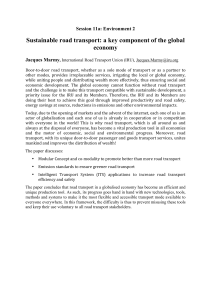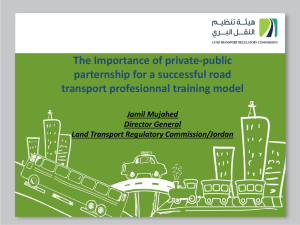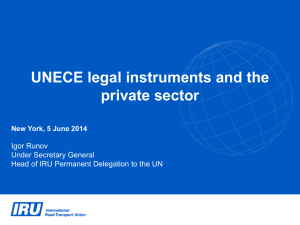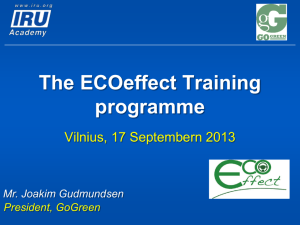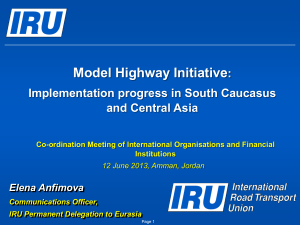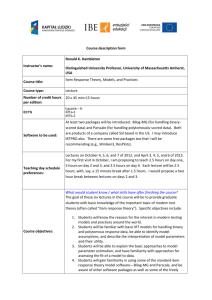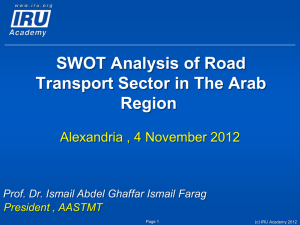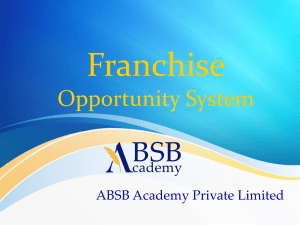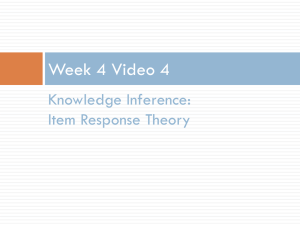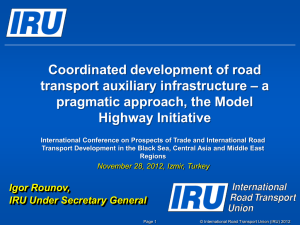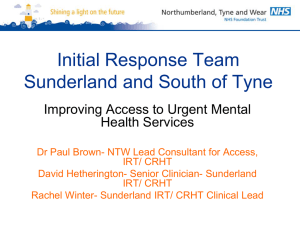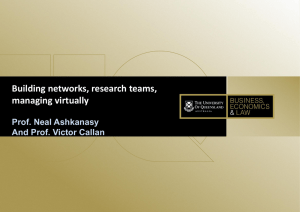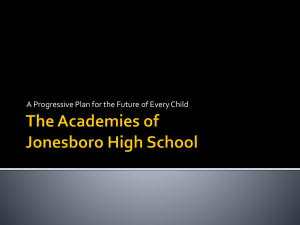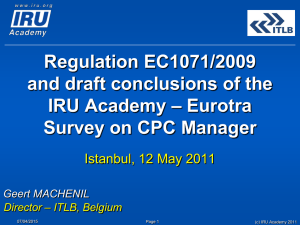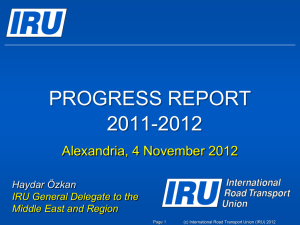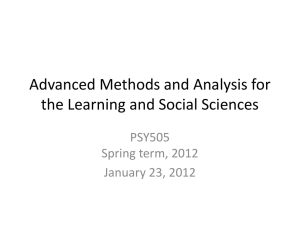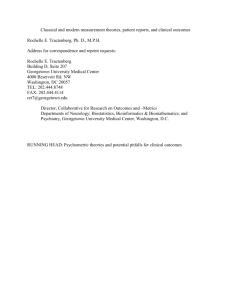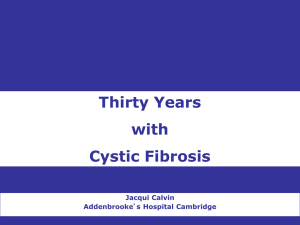Competence and training effectiveness assessment
advertisement
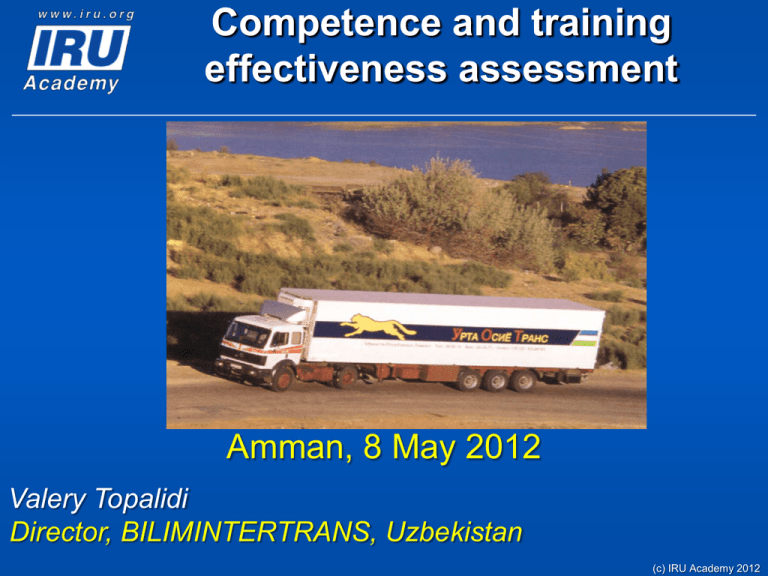
Competence and training effectiveness assessment Amman, 8 May 2012 Valery Topalidi Director, BILIMINTERTRANS, Uzbekistan (c) IRU Academy 2012 Historical Background 1996 - start of licensing of international road transportations (IRT) in Uzbekistan Development of national legislation on admission and development of IRT Conclusion and signing of bilateral and multilateral agreements on IRT (in 2012 with 30 countries) Joining to International Conventions and Agreements Government of the Republic of Uzbekistan (RUz) enacted obligatory CPC education for managers and drivers in the IRT sphere (Uzbekistan joined to 12 Conventions and Agreements) September 1996 – with support of EU – TRACECA program was opened training centre on CPC for managers and drivers in the IRT sphere under the Tashkent Automobile and Road Construction Institute (TU) (c) IRU Academy 2012 Historical Background In 2001, with the support of IRU and EU TRACECA program was opened training-scientific centre (TCS) “BILIMINTERTRANS”; founders AIRCUZ and TARCI (TU). Currently, TCS accredited by the IRU Academy on 5 training programs for managers and drivers: Professional competence is a guarantee of safety and effectiveness of IRT. (c) IRU Academy 2012 EC Regulation 1071/09 as a basis – CPCMI (p 2.1.5 СР.4 UNECE) / BILIMINTERTRANS Module I Civil Law - Characteristics, condition and perspectives of IRT Module II Commercial Law - IRT legal basis Module III Social Law - Technical standards and choosing of vehicle for IRT Module IV Fiscal Law - Safety and organization of international road traffic Module V Business and financial management of the undertaking - Organization of IRT Module VI Access to the market - Logistics technologies in IRT Module VII Technical standards, operations - Customs procedures and documentation Module VIII Road Safety - Business on road transport (c) IRU Academy 2012 Guidebooks and reference materials developed by TSC “BILIMINTERTRANS” (c) IRU Academy 2012 Roads to success in training Presence of skilled trainers with field experience. Obligatory leading of practical lessons on choosing of vehicle, filling CMR, TIR Carnets, analysis of tachographs data, choosing of routes for transportation, methods of loading and cargo securing, development of business plans for companies. Availability of educational and reference manuals, movies. Permanent quality. monitoring of training programs’ (c) IRU Academy 2012 Assessment of knowledge level in CPCMI Overall course of lectures and practical lessons equal to 120 hours Each lesson takes 6-8 academic hours per day Presentation of analytical study “Business plan of transport company” made on a basis of company-employer of student/listener or several students. Test examination – 60 questions. Time per examination – 90 minutes. 70% of correct answers – student/listened to be certified. Written examination – 10 direct and situational questions. Duration of examination – 150 minutes. (c) IRU Academy 2012 LEARN ! To prevent such cases with you! Page 8 (c) International Road Transport Union (IRU) 2011 TSC “BILIMINTERTRANS” contribution to UN Decade of Action for Road Safety 1. RUz Standards on requirements and methods of control of safety of vehicle’s technical condition. 2. Guideline on abnormal goods transportations in RUz. 3. “Standardization of tires’ operational run”. RUz regulatory document. 4. Additions to the UNECE Regulation #13 “Requirements for compatibility of rolling stock of modular road trains” 2000 1965 (c) IRU Academy 2012 Competence and training effectiveness assessment Recommendations: 1. Amend p.2.1.5 of UNECE Consolidated Resolution СР.4 on minimum requirements to CPCMI. 2. Strictly observe minimum requirements, identity of training programs and knowledge control. 3. Add to the CPCMI transport company business plan development by students. 4. Practice of reciprocal probation/training for ATI trainers in Eurasia countries. (c) IRU Academy 2012 Welcome to Uzbekistan Thank you for attention (c) IRU Academy 2012 (c) IRU Academy 2012
